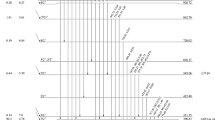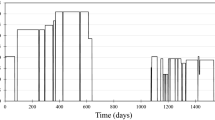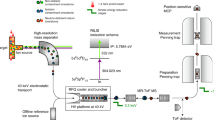Abstract
THE separation of the uranium isotopes is of interest because only one of the isotopes, 235U, is believed to undergo fission when bombarded by slow neutrons. The best way to check this theory would be to change the relative particle density of 235U and to see if that has any influence on the number of fissions caused by a certain number of neutrons. If the theory proves correct, one might be able to cause a nuclear chain reaction by concentrating 235U and removing the other isotopes, which only catch neutrons without producing new ones.
This is a preview of subscription content, access via your institution
Access options
Subscribe to this journal
Receive 51 print issues and online access
$199.00 per year
only $3.90 per issue
Buy this article
- Purchase on Springer Link
- Instant access to full article PDF
Prices may be subject to local taxes which are calculated during checkout
Similar content being viewed by others
References
Naturwiss., 26, 546 (1938).
Phys. Rev., 55, 590A (1939).
Phys Rev., 55, 1083 (1939).
Author information
Authors and Affiliations
Rights and permissions
About this article
Cite this article
KRASNY-ERGEN, W. Separation of Uranium Isotopes. Nature 145, 742–743 (1940). https://doi.org/10.1038/145742b0
Issue Date:
DOI: https://doi.org/10.1038/145742b0
Comments
By submitting a comment you agree to abide by our Terms and Community Guidelines. If you find something abusive or that does not comply with our terms or guidelines please flag it as inappropriate.



